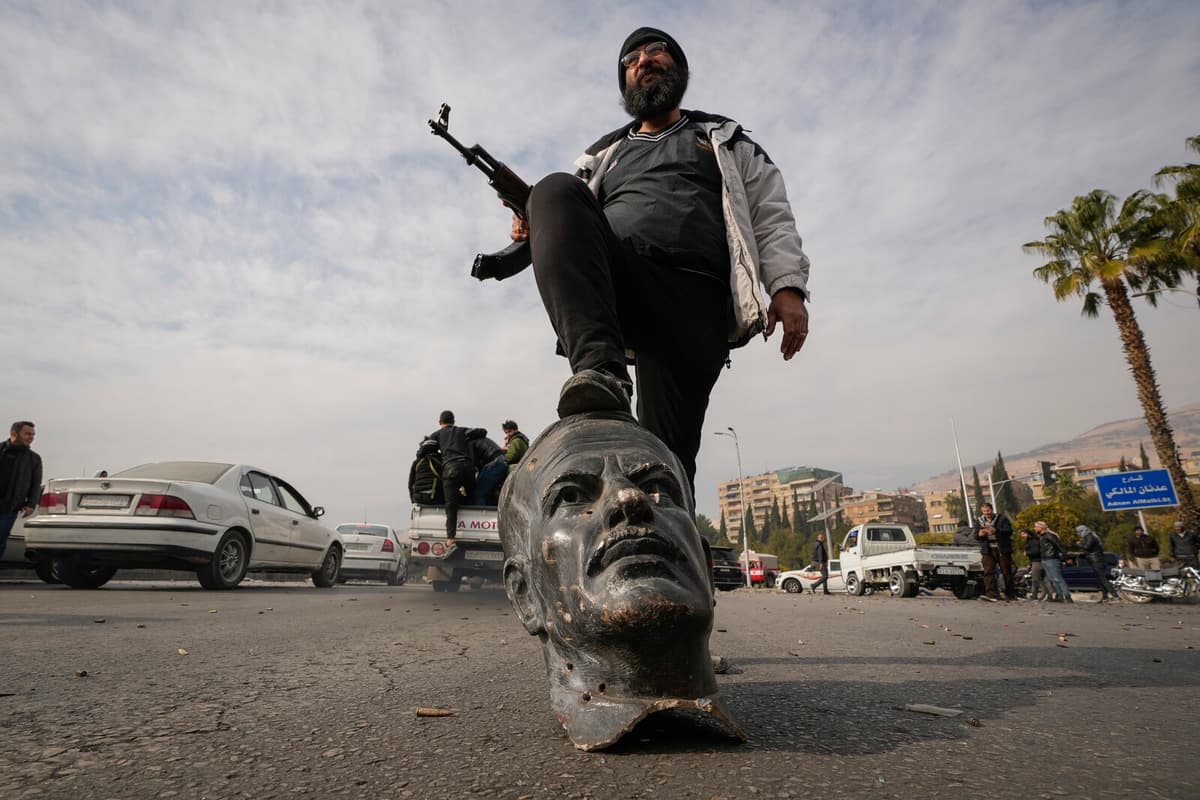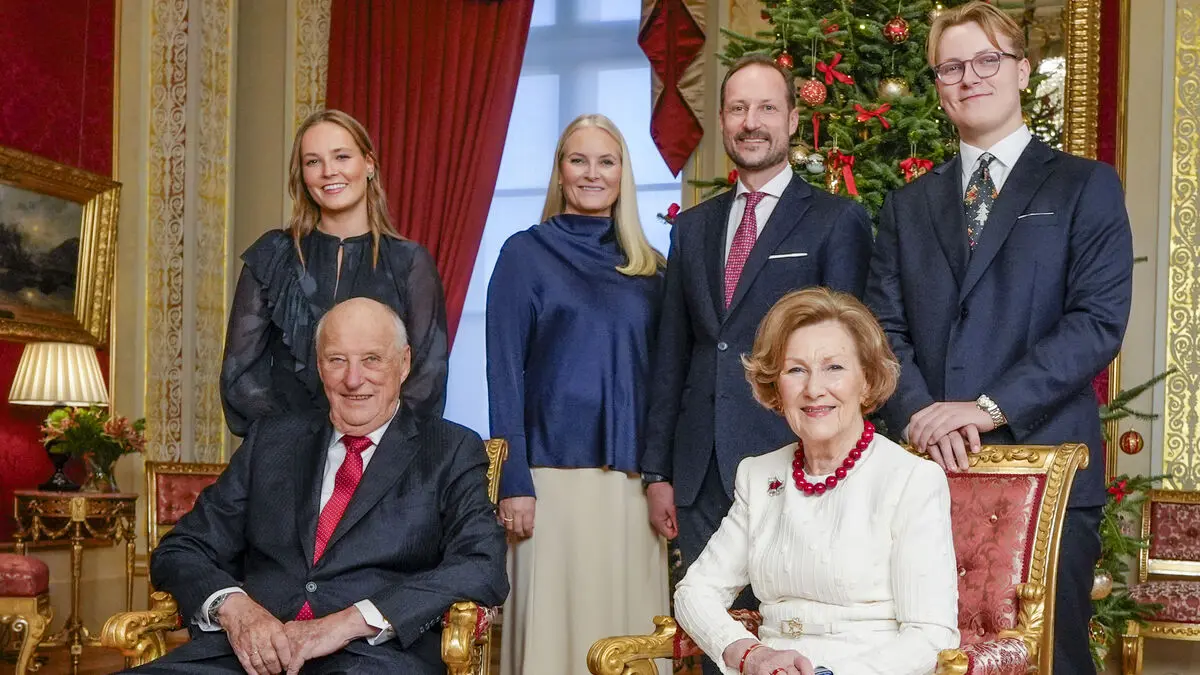Now there is no turning back. We are firmly determined to continue on the path we embarked on in 2011, says a statement from Hayat Tahrir al-Sham (HTS) leader Abu Mohammed al-Jawlani, read out on state-controlled TV.
2011 was the year the protests against al-Assad broke out, leading to civil war.
In the TV statement, it is formally announced that Syria's hardline and long-time leader Bashar al-Assad has been overthrown, reports Sky News.
Statue fell
Historic scenes had already unfolded in Damascus, where a statue of Bashar al-Assad's father Hafez was toppled and crowds surged into the presidential palace. That the uprising against the regime would go so quickly was something few had expected. Early on Sunday, HTS declared Damascus free from al-Assad and people took to the streets to celebrate.
Bashar al-Assad himself is said to have left Damascus in a plane in connection with the jihadist forces entering the capital. Russia's Foreign Ministry claims that he "resigned" and left the country, but his whereabouts are unclear.
The jihadist rebels were quick to announce what applies: A curfew has been imposed in Damascus between 4 pm and 5 am local time. And for military forces, it is "strictly forbidden" to approach the city's public institutions, which will remain under the supervision of the former prime minister until they are officially handed over, according to the HTS leader.
Freed prisoners
Prisoners in the notorious Saidnaya prison north of Damascus have been released during the advances, according to HTS. Bashar al-Assad's regime has been accused of widespread torture and murder of opposition members in the military prison during the Syrian civil war.
The Iran-backed Shia militia Hezbollah, a close ally of al-Assad's regime, withdrew its forces from Damascus and Homs on Sunday. They are said to have been instructed to move to Lebanon and the Latakia area on the Syrian coast. Meanwhile, Israel has strengthened its military presence in border areas.
It's only a little over a week since the terrorist-listed extremist group HTS launched its surprising offensive, where first the major city of Aleppo and then several other cities fell.
HTS claims on Sunday that its forces are also advancing west of the Euphrates River in the province of Dayr al-Zor (Deir Ezzor) in the east. The area has previously been controlled by regime forces, while Kurdish-led forces have controlled the eastern side of the river.
Syria is a relatively young state, founded in an area where humans have lived for thousands of years – both the capital Damascus and Aleppo rank among the world's oldest cities.
The country has waged war against Israel several times since the end of the 1940s and briefly formed the United Arab Republic with Egypt and the Gaza Strip in the late 1950s.
After several coups in the 1960s, the al-Assad family took power, first with father Hafez al-Assad and after his death in 2000, son Bashar al-Assad. The latter has managed to hold on to the presidency until now, despite a devastating civil war ravaging large parts of the country, largely due to support from Russia, Iran, and Iran-backed Shia militias in the region. The war was triggered by protests during the Arab Spring in 2011. Turkey has supported certain resistance groups in northwestern Syria for several years.






